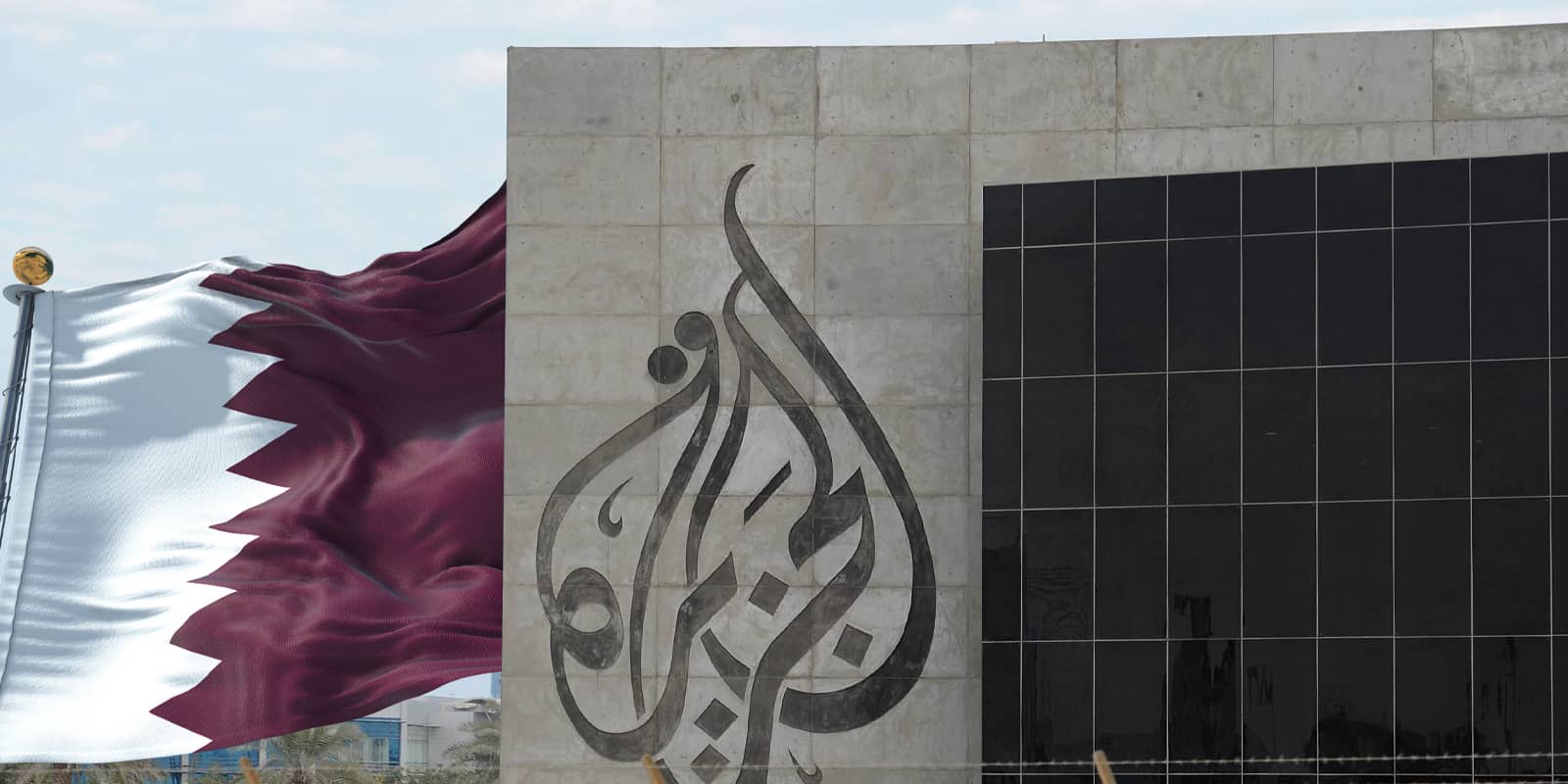Qatar seems hell-bent on promoting hatred against Israel. So why does Jerusalem allow Al Jazeera complete freedom of operation?
Israel’s willingness to swallow abuse and indignity from foreign states has long been a feature of Israeli foreign relations. Suppose such forbearance in the case of Egypt and Jordan has been justified on weighty geostrategic considerations. In that case, it is much more mystifying to understand such tolerance for the tiny Kingdom of Qatar, located firmly along the axis of evil and persistently evil toward Israel.
Qatar’s positioning along the axis of evil is reflected in two contradictory foreign policy vectors. On the one hand, Qatar is an ally of Iran – the Islamic theocracy that poses the greatest danger to Israeli national security. Throughout the corona crisis, the Kingdom was the only state in the world that maintained flights with Iran. On the other hand, Qatar is the leading state supporter and sponsor of the Islamic Brotherhood, Hamas, and other extremist Sunni organizations, with a strong tradition of enmity toward Qatar’s Shi’ite ally, Iran. The common denominator behind this Janus-faced foreign policy is the blind hatred toward Israel and support for the violent acts Qatar’s allies promote against Israel.
An integral dimension behind this duplicity lies on the media front, in which Qatar, with its Lilliputian citizenship and small geographical dimension, is perhaps the wealthiest state in the world thanks to its gas exports and considerable reserves.
The Kingdom’s investments have centered on the creation of the extensive media site Al Jazeera Arabic, arguably the largest in the Middle East; Al Jazeera in English, a much less successful venture despite Qatar’s lavish spending on the site; and AJ+ in Arabic, English, Spanish and French. The first two sites primarily provide round-the-clock news coverage. By contrast, AJ+, disseminated mainly through YouTube, is characterized by more comprehensive and focused reports than the first two sites, ranging from 12 minutes to close to an hour.
What is striking are the differences in thematic focus between Al Jazeera Arabic and AJ+ despite having the same sponsor: the Kingdom of Qatar.
In keeping with a Kingdom that hosted Yusuf al-Qaradawi, the extremist Egyptian-born Sunni preacher and scholar who passed away in 2022, Al Jazeera in Arabic is infused with Sunni religious messages and coverage. Far less coverage is given to issues such as women, environmental concerns, human rights, democracy, and workers’ rights. That is precisely why Qatar has justifiably come under attack, including ignoring the deaths of hundreds of workers in the harsh conditions that prevailed in building the infrastructure needed to stage the World Cup at the end of 2022.
In sharp contrast, AJ+ is characterized by a strong “progressive” bent that focuses on the presumed plight of minorities in the West and their suppression, environmental concerns, and workers’ and immigrant rights. Of course, none of these issues are raised toward Qatar, the site’s sponsor. There is almost no mention of religion. A consumer of AJ+ could quickly conclude that violation of these rights occurs mainly in the US, Great Britain, and of course, Israel, and only occasionally, if at all, in states such as Iran, China, and North Korea.
Comparing these two sites based on 60 days of coverage reveals the gnawing contradictions in their messages and the cynical media manipulations of their sponsor.
Once again, the common denominator between these two opposites is blind hatred and the attempt to incite violence against Israel. In both media sites, the focus on Israel exceeds any other issue, including women, democracy, and human rights, or on any other country, such as the US, China, Egypt and other large states. Qatar seems hell-bent on promoting hatred for the Jewish State among progressives and conservatives.
The titles given to AJ+’s video reports alone evince the blind hatred exhibited toward Israel. A widely-viewed 12 minutes on “Americans in Jerusalem Aiding the Eviction of Palestinians in Jerusalem” focused on English-speaking Jewish demonstrators who came to the Shimon Hatzadik/Sheikh Jarrah neighborhood to express their support for the Jewish residents. They, and the security forces, are represented in a negative light, as the report completely disregards the legal background to the conflict: a court ruling by Israel’s High Court of Justice that the Arab residents illegally squatted on property bought by Jewish organizations well before the establishment of the State.
Another video, “They Came Here to Attack Arabs. Welcome to Life in Israel’s Mixed Cities,” does not note the 10 synagogues burnt in Lod and Acre (Akko) and the absence of attacks on local mosques. Nor does it mention that 89% of those charged for acts of violence within a year of the mass wave of violence in May 2021 were Arab.
It is hard to understand why Israel allows Al Jazeera complete freedom of operation when it is so inciting that the Hamas media site al-Aqsa TV often broadcasts Al Jazeera in Arabic instead of providing live coverage of its own. This forgiveness reaches absurd levels during the bouts of Hamas-initiated war against Israel. It is common to see Al Jazeera correspondents broadcasting on the site’s live coverage just yards from an IDF artillery force or an Iron Dome, defying essential security safeguards.
More difficult to comprehend is why Israel – in the wake of the Israel-Lebanese agreement defining the maritime border between the two states – gave the OK to a Qatari energy company to explore and drill along the maritime border along with a French and Italian company. Given the warm relations between Qatar and Iran, it is more than likely that some of the profits, if realized, will flow to Hizballah coffers, only to increase the danger the organization poses to Israel’s security.
Israel is using Qatar to corrupt its aging leaders to “tame” Hamas – the Qatar envoy to Gaza regularly distributes cash in dollars to families that the Hamas-dominated Social Affairs Ministry identifies as needy. The policy is certainly logical but not necessarily correct. That some of these funds enhance Hamas’ military capabilities are a fact of life. Whether Hamas will be tamed is doubtful.
It might be that Israeli policymakers are fearful of Qatar’s financial might. Qatar could use its vast sovereign fund to manipulate money markets in ways that could bring down the value of Israeli companies. In the long run, it would make it difficult for them to raise capital in international markets.
In any event, it is time to evaluate a new Israeli policy toward Al Jazeera, especially in light of Cairo’s decision to suspend its activities in Egypt in reaction to Al Jazeera’s hostile coverage during Abdel Fattah al-Sisi’s rise to the presidency in 2013.
Photo credit: IMAGO / Ulmer, Freepik





 - בניית אתרים
- בניית אתרים